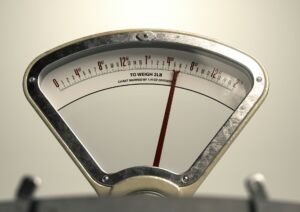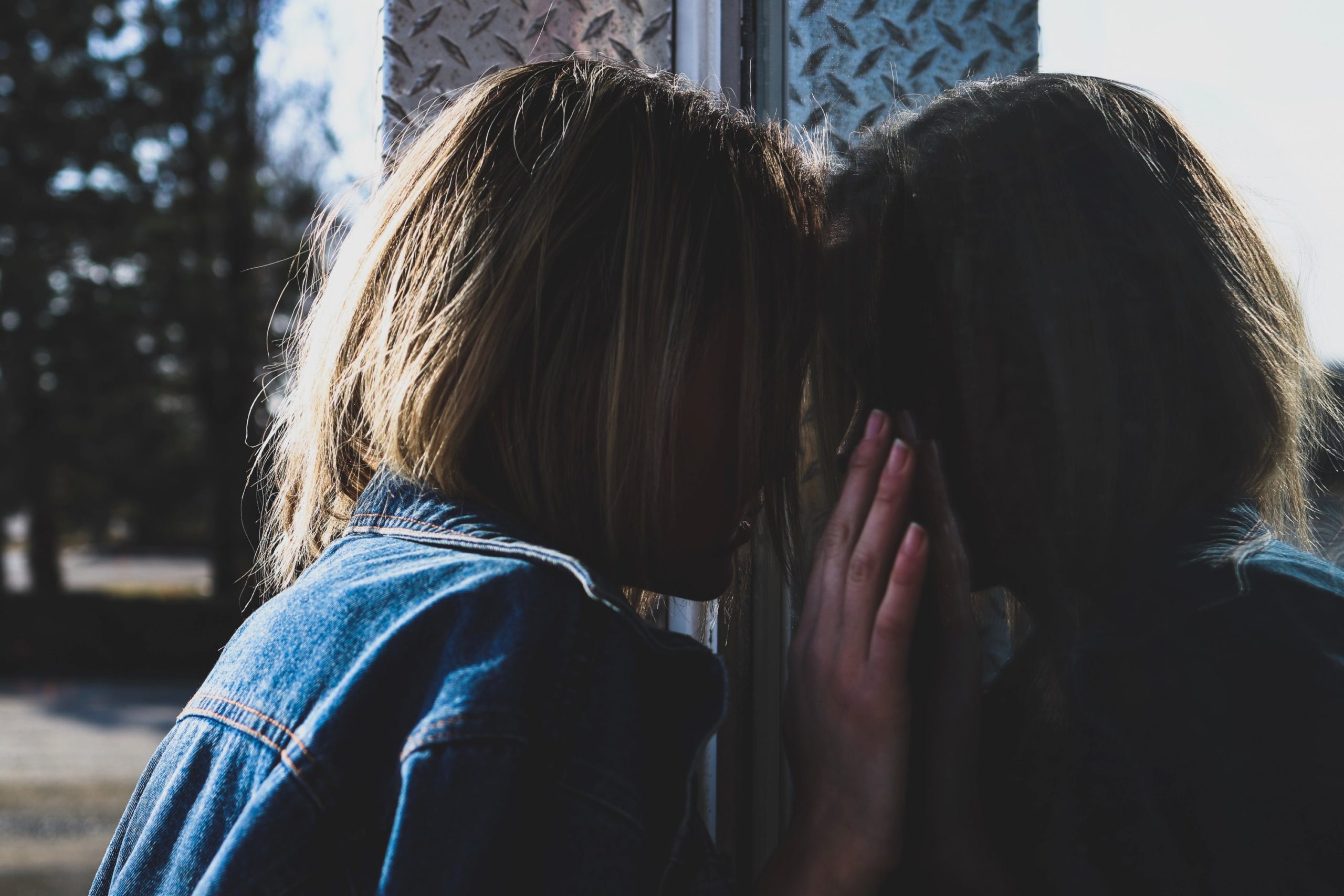Our relationship with food can at times be complex, and when food is intertwined with our emotional experiences, self-talk, and internal narratives, this relationship becomes even more complex, sometimes causing an eating disorder.
When we start to experience guilt after meals, call ourselves derogatory names based on food choices, or ruminate on how a different physical appearance would change how we feel about ourselves, it can lead to food consuming other areas of our life, as well as taxing us physically and emotionally.
It is vital to notice slight changes in our thoughts and behaviors because these little shifts can quickly become habits that then morph into the larger narratives we tell ourselves, potentially leading to addicting patterns. Irvine Christian Counseling can help guide individuals in recognizing and addressing these subtle shifts before they turn into more significant issues.
For example, you might notice yourself start labeling foods as “good” or “bad,” and then start avoiding certain foods. Or you might notice yourself saying, “I should not have eaten that,” and then you feel like you need to exercise to “make up for it.” Or it could be that you start wondering about your weight leading to weighing yourself daily.
 These types of behaviors have the potential to develop into eating disorder symptoms which include but are not limited to, intentionally restricting food intake, obsession with weight, calories, and/or food content, fear of weight gain, binging, purging, laxative abuse, over-exercising.
These types of behaviors have the potential to develop into eating disorder symptoms which include but are not limited to, intentionally restricting food intake, obsession with weight, calories, and/or food content, fear of weight gain, binging, purging, laxative abuse, over-exercising.
Ideally, before these behaviors become patterns or even occasional occurrences, is the time to seek help. These are some questions to ask yourself to determine if there are warning signs of something deeper internally affecting you that is manifesting in your relationship with food and your body.
Am I isolating?
As our thoughts start to be consumed by how your body looks or what you are eating, you might notice yourself slowly distancing yourself from others. Eating disorders feed on isolation.
When we are isolated from others, we are left to decipher the truth in our internal dialogue, and when this is distorted, it often leads to forming narratives that translate into beliefs such as “I need to change my body,” “I don’t deserve this food,” or “I would feel happier if my weight changed.”
In addition, the enemy’s voice is often the loudest when we are alone, and he can start to whisper lies, using language as “you shouldn’t eat that,” “you haven’t earned this,” “you aren’t worthy of love.”
When we are increasingly alone with those thoughts, our behaviors also shift, we start eating alone, we choose to go to the gym over spending time with family or friends, we collect food for a binge instead of doing a hobby we enjoy. The more we are alone, the more are thoughts and behaviors become distorted yet start to feel deceptively “normal.”
Am I keeping secrets?
Coupled with isolation is secrecy, isolation is needed to sustain the secrets. As eating disorders progress, more secrets develop. Sometimes it starts by minimizing how much time you spend exercising, telling others you have already eaten when you skip a meal, or hiding food.
Some questions to ask yourself would be, “Am I lying about what I have eaten or when I have eaten?” “Am I keeping to myself my desire to lose weight?” or “Am I weighing myself often when no one is watching?”
Am I preoccupied with food?
 Due to the isolation, our minds often perseverate. This could include planning out rituals, keeping an ongoing count of calories consumed, or ruminating on guilt. If the majority of our internal world is consumed by thinking about food and the rituals associated with it, there is less space in our lives for meaningful relationships and passions.
Due to the isolation, our minds often perseverate. This could include planning out rituals, keeping an ongoing count of calories consumed, or ruminating on guilt. If the majority of our internal world is consumed by thinking about food and the rituals associated with it, there is less space in our lives for meaningful relationships and passions.
If our thought life is revolving around eating, it is a warning sign. Any obsession is a warning sign that internally something is wrong. If a high percentage of your thoughts throughout the day are taken by food, weight, and calories, this is the time to reach out to others.
Do I experience anxiety around food?
Eating disorders manifest in obsessive and compulsive tendencies in which we feel as though we have to follow through with something to “feel okay,” and keep anxiety and guilt at bay. The “have tos” “shoulds” and “can’ts” don’t leave us with any alternative options.
When we are unable to carry out what our mind is set on, panic and anxiety set in. This is one way that eating disorders mirror other addictions. The cravings for either the experience of hunger, purging, or binging become consuming to the point of experiencing distress if we cannot engage in these behaviors.
Am I losing interest in other areas of my life?
To sustain an eating disorder requires a great deal of sacrifice. When food and food-related rituals consume our minds and time, we are left without the space in our lives for the hobbies, work, and relationships that once brought us joy.
Despite the empty promises of fulfillment, contentment, and happiness eating disorders claim to provide, they instead contribute to anxiety and depression. This anxiety and depression often then lead to apathy and anhedonia. If we find ourselves wanting the eating disorder behaviors more than what previously brought us joy, it shows us the eating disorder is consuming us.
Am I noticing physical changes?
Our bodies can be a trusted indicator of what is happening to us emotionally. Changes in energy levels, weight, sleep patterns, or any new medical issues can be warning signs that our body is struggling. Eating disorders pose a serious risk to our health and quality of life, and seeking help early on can mitigate the chance of long-term health consequences due to an eating disorder or disordered eating patterns.
Are my close relationships strained?
Due to the isolation and secrecy, eating disorders often cause distance and disconnect in our close
Relationships, which can further depression and anxiety. Just like with any addiction, when we start prioritizing our food rituals over spending time with loved ones, we can go further into our behaviors due to isolation. When we push people away to project our goal weight or pursuit of contentment with our body, it can create bitterness, resentment, and loneliness.
 Some other examples of pushing others away would be skipping usual commitments to engage in a behavior, such as going to the gym or purging or lying to the people we once had mutual trust with. Just as in our close relationships with other people, eating disorders can strain our relationship with God.
Some other examples of pushing others away would be skipping usual commitments to engage in a behavior, such as going to the gym or purging or lying to the people we once had mutual trust with. Just as in our close relationships with other people, eating disorders can strain our relationship with God.
If we notice ourselves distancing ourselves from God, whether that be less time in prayer, avoiding Christian community, or avoiding hearing/reading about topics regarding our walk with Jesus, this is an internal signal that emotionally and spiritually there is healing to take place.
Am I attempting to cope with my current emotions or circumstances?
Often eating disorders can provide a sense of twisted stability and consistency. We have the illusion of control when other things in life feel out of control. The eating disorder can also be a distraction from other difficult emotional experiences such as depression, loneliness, or grief.
In this way, eating disorders can mirror an aspect of self-harm. The preoccupation with the eating disorder, and even the pain it can inflict, provides a momentary relief and distraction from other external sources of anxiety that feel unmanageable to us.
Do I experience guilt?
 When disordered eating patterns start, there often is an emotional experience of guilt and shame that soon begins to be present anytime food is involved.
When disordered eating patterns start, there often is an emotional experience of guilt and shame that soon begins to be present anytime food is involved.
We can notice guilt when we start experiencing things such as “If I do not follow my eating plan for the day, do I experience overwhelming guilt that often leads to anxiety and panic?” or “If I eat a food I have deemed ‘unhealthy’ is there immediate regret that follows?” When we experience this guilt, this is a sign that we are truly no longer in control but that the eating disorder is controlling us.
Conclusion
If you relate to anything described above, you are not alone, and it is time to reach out to Irvine Christian Counseling. Therapists and trusted loved ones are there to come alongside you in emotional and spiritual healing to decipher the lies an eating disorder perpetuates and find true lasting freedom and contentment.
“Scale”, Courtesy of Getty Images, Unsplash.com, CC0 License; “Silhouette Eating”, Courtesy of Annie Spratt, Unsplash.com, CC0 License; “The Woman in the Mirror”, Courtesy of Vinicius “amnx” Amano, Unsplash.com, CC0 License; “Measuring Tape”, Courtesy of Jennifer Burk, Unsplash.com, CC0 License
-
Kate Motaung: Curator
Kate Motaung is the Senior Writer, Editor, and Content Manager for a multi-state company. She is the author of several books including Letters to Grief, 101 Prayers for Comfort in Difficult Times, and A Place to Land: A Story of Longing and Belonging...
DISCLAIMER: THIS ARTICLE DOES NOT PROVIDE MEDICAL ADVICE
Articles are intended for informational purposes only and do not constitute medical advice; the Content is not intended to be a substitute for professional medical advice, diagnosis, or treatment. All opinions expressed by authors and quoted sources are their own and do not necessarily reflect the opinions of the editors, publishers or editorial boards of Irvine Christian Counseling. This website does not recommend or endorse any specific tests, physicians, products, procedures, opinions, or other information that may be mentioned on the Site. Reliance on any information provided by this website is solely at your own risk.




